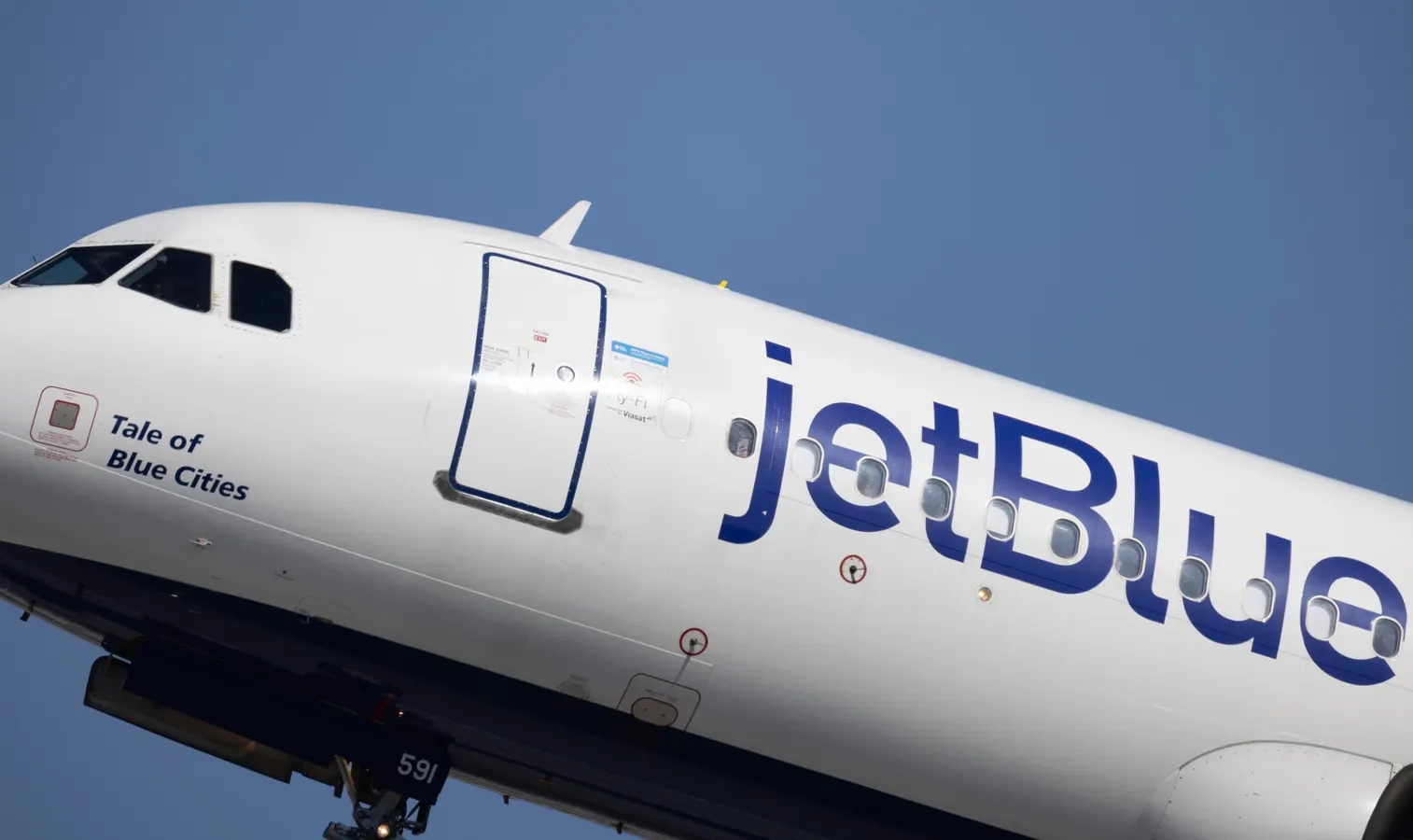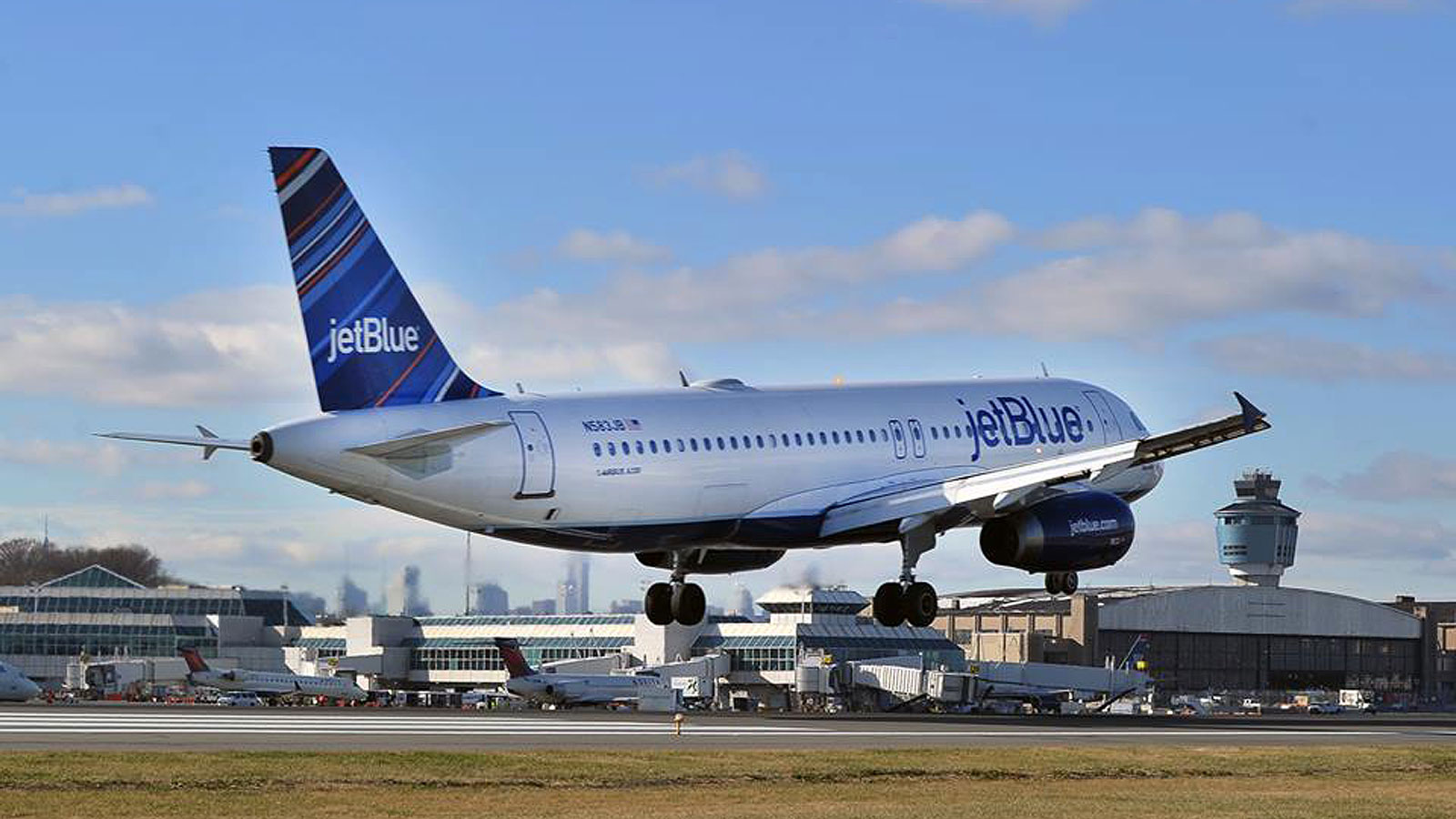In the 24 years since JetBlue Airways’ inaugural flight, the New York-based airline has consistently pushed boundaries for a carrier of its size. Now, with new executive hires and cost-cutting measures, it aims to return to its core strengths.
JetBlue was an innovator in offering seat-back entertainment, free Wi-Fi, high-quality snacks, and a business-class cabin with lie-flat seats at lower prices than competitors.
More recently, it has expanded its reach across the Atlantic with flights to London, Paris, Amsterdam, and Dublin. Additionally, JetBlue had planned to acquire budget airline Spirit Airlines for $3.8 billion until a judge blocked the deal last month; the carriers are currently appealing this decision.
Despite JetBlue’s history of bold ideas, it has struggled with profitability, cost management, and operational reliability. These challenges will be a primary focus for incoming CEO Joanna Geraghty, who will take over on Monday, succeeding Robin Hayes.
The pressure on Geraghty is heightened by the recent disclosure from activist investor Carl Icahn, who revealed a nearly 10% stake in the company and indicated his intention to seek board representation.
Geraghty, 51, has been with JetBlue for almost 20 years, most recently serving as president and chief operating officer. Her promotion to CEO marks the appointment of the first woman to lead a major U.S. passenger airline.
“The key strategic challenge we’ve always faced is how to thrive as a small player in an industry dominated by four large airlines,” Geraghty noted during a January 30 earnings call, referring to American, Delta, United, and Southwest, which collectively control about 80% of the domestic market.
Last week, JetBlue announced the reappointment of its former chief commercial officer, Marty St. George, 59, as president.
St. George, who left JetBlue in 2019 after 13 years and most recently worked at Latam Airlines, is known for his industry experience and strong relationships with front-line workers.
“Marty will be a much-needed force of good for JetBlue in improving the airline’s operational focus and reliability,” said Henry Harteveldt, founder of the consulting firm Atmosphere Research Group. “Legroom doesn’t matter, snacks don’t matter if your schedule can’t be trusted.”
Tyesha Best, president of the Transport Workers Union Local 579, which represents JetBlue’s approximately 6,000 flight attendants, expressed hope for improvements due to St. George’s return but highlighted the urgent need for better crew scheduling and staffing, particularly in the business-class Mint cabin. “Our quality of life still isn’t where it needs to be,” Best said.
JetBlue also promoted Warren Christie, 57, from his previous role overseeing safety, security, fleet operations, and airports to take over Geraghty’s position as COO.
Geraghty, who JetBlue declined to make available for an interview, will need to persuade investors and customers of the company’s turnaround plan.
JetBlue’s last annual profit was recorded in 2019, before the pandemic. Wall Street analysts do not expect the airline to return to profitability until 2025, while other carriers have already regained profitability during the post-COVID travel surge.

JetBlue’s stock has declined by 29% over the past 12 months, whereas the NYSE Arca Airline index has risen nearly 6% over the same period.
JetBlue ranked ninth in punctuality among U.S. airlines from January through November 2023, with less than 67% of its flights arriving on time, according to the Department of Transportation.
“As we operate in one of the most complex and challenging airspaces, operational reliability is foundational to all of our priorities,” Geraghty said during the earnings call.
“This helps us deliver a better customer experience while also improving revenues with fewer refunds and disruption vouchers and better cost management as we mitigate overtime and premium pay.”
The airline plans to reveal details about $300 million in new revenue initiatives during an investor day in May and announced last month that it is on track to reduce costs by up to $200 million by the end of the year.
“We’ve been given the appetizer but the main course isn’t until investor day,” said Brett Snyder, president of the Cranky Concierge travel assistance company and the Cranky Flier site. “They’re hiring the right people. I am cautiously optimistic for the first time in years.”
JetBlue has recently implemented cost-cutting measures, including staff buyouts, deferring some capital expenditures on aircraft, trimming unprofitable routes, and reducing frequencies on some routes to focus on profitable areas such as premium leisure travel and visiting friends and relatives.
Snyder noted that JetBlue will need to critically assess its network to eliminate ineffective routes and make tough decisions to improve operations.
“Customers expect good service, and when they don’t get it, they’re vocal about it,” Geraghty said in a 2019. She described the airline’s then-current stage as “exiting that awkward teenage stage and becoming adults.”
In its most aggressive expansion move, JetBlue pursued budget carrier Spirit Airlines. It made an unexpected offer for Spirit in April 2022, when Spirit had already agreed to merge with fellow discounter Frontier Airlines.
Spirit shareholders eventually rejected the Frontier deal and opted for JetBlue’s acquisition offer, arguing that it would better position JetBlue to compete against rivals amid limited growth opportunities in the U.S. due to aircraft and space constraints.
The Justice Department filed a lawsuit to block the merger in March 2023, citing reduced competition concerns. In January, a federal judge agreed with the DOJ’s position.
JetBlue and Spirit are appealing the ruling, although analysts are skeptical about a favorable reversal. Investors have appeared relieved that JetBlue will not be paying $3.8 billion for Spirit, which had a market capitalization of $726 million as of last Friday’s close.
Spirit executives have sought to reassure stakeholders about the airline’s future, even as it faces financial difficulties, partly due to a Pratt & Whitney engine recall affecting numerous planes.
Geraghty stated last month that JetBlue disagrees with the judge’s ruling and emphasized the need for a robust organic plan if the appeal is unsuccessful.







Leave a Reply